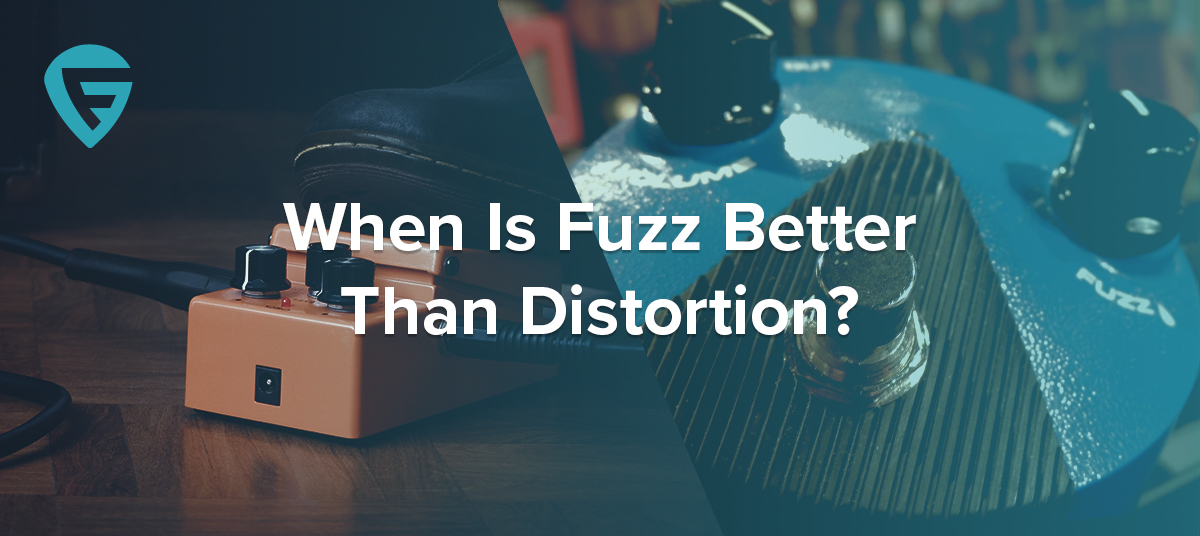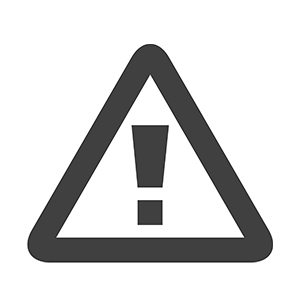- Home
- Instruments
- Gear
- Recording
- Lessons
- Reviews
- Blog

Most new guitar players who are just entering the awesome world of guitar effects pedals are usually confused when it comes to overdrive, distortion, and fuzz effects. On a second thought, a lot of experienced guitar players are confused about this as well.
Whether they are aware of it is a completely different topic. The whole misunderstanding is understandable. There are models from each of these three groups that sound compared to each other. However, it's important to know the difference.
Fuzz is the true predecessor of what we call distortion pedals today. It's not a matter of which one is better, but more of a personal taste. Both the fuzz and distortion have their benefits, and our task today is to figure out when is it better to use one over the other.
 First fuzz pedals appeared in the early '60s and were the original way of distorting the signal. Ever since then, fuzz has been one of the most popular guitar effects on the market. The main difference between the fuzz effect and modern distortion effect is in the way the pedal compresses the signal.
First fuzz pedals appeared in the early '60s and were the original way of distorting the signal. Ever since then, fuzz has been one of the most popular guitar effects on the market. The main difference between the fuzz effect and modern distortion effect is in the way the pedal compresses the signal.
Fuzz is generally a lot more chaotic in terms of overtones and the amount of gain that is pushed into your guitar's raw signal. On the other hand, distortion pedals have a much more clinical approach and deliver a well ironed out layer of signal distortion.
Even though fuzz pedals can be pure anarchy at times, they are still a lot more expressive than distortions. All of the dirt that is dropped on your guitar's signal give the tone a lot of girth, but it doesn't affect the core of the signal. You can still hear what is essentially a clean tone with slight overdrive underneath all that fuzz.
This type of performance comes in handy when you want to play solos or more extensive blues licks. Especially when we are talking about germanium fuzz boxes. If you're interested in learning what different types of fuzz circuits exist, check out our article that explains this in detail.
One of the most devoted fuzz fans was no one other than Jimi Hendrix. Listening to any of his hits will give you a great demonstration of how a fuzz pedal sounds when properly used. So to answer the question from the title of this section – no, fuzz is not outdated.
 Fuzz has a lot to offer as a guitar effect, but it comes with its own limitations. Due to its chaotic nature, it takes a lot of work to dial in a good tone that will sound great and cut through the band when you play. When added to a more complex signal chain, a fuzz can start acting up. On the other hand, distortion pedals don't suffer from many of these issues.
Fuzz has a lot to offer as a guitar effect, but it comes with its own limitations. Due to its chaotic nature, it takes a lot of work to dial in a good tone that will sound great and cut through the band when you play. When added to a more complex signal chain, a fuzz can start acting up. On the other hand, distortion pedals don't suffer from many of these issues.
Sure, they handle the task of adding distortion to the signal in a different way, but they are far more responsive even when you're not familiar with their controls. You can think of it as driving an old manual car with no synchros compared to driving a modern automatic transmission. You have a lot more control over the car, but it takes more effort to get from gear to gear.
 If you know how to work the fuzz box, you can make it useable in just about any genre of music where a distortion fits well. With that said, it does work better in some genres than others. Blues and rock are the standard fuzz territory.
If you know how to work the fuzz box, you can make it useable in just about any genre of music where a distortion fits well. With that said, it does work better in some genres than others. Blues and rock are the standard fuzz territory.
Think Hendrix, Jimmy Page or David Gilmour. Music such as metal benefits a lot more from a good distortion pedal than it does from a fuzz box, but there are some metal bands whose guitar players still prefer fuzz. It all comes down to personal taste in the end.
One of the best things about guitar effects pedals is that you can mix and match different combinations depending on your tone requirements at any given moment. Both the fuzz effect and distortion effect have their place. Looking at them as two mutually exclusive tools is a wrong way of thinking about guitar tone and guitar effects in general. For the most part, beginner guitar players like to use distortions a lot more due to their overall simplicity.
Fuzz is more of an effect experienced player would dwell in since they already know exactly what they need, and how to get it. In a perfect world, you would want to have several models of each at your disposal, especially since there are some pretty awesome fuzz boxes and distortion pedals available on the market.

Paul says
Helpful article. I’ve recently started playing guitar again after a ~17 year hiatus. I was delighted to find my parents still had my Boss Hyperfuzz, which I had bought in the 90s for it’s grungey sound. Still works and still a lot of fun to play with.